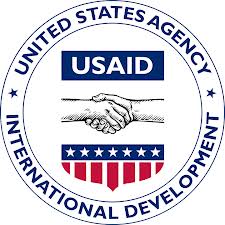Little-noticed Supreme Court ruling helps AIDS fight
Colin Stewart is a 45-year journalism veteran living in Southern…
 The U.S. Supreme Court yesterday announced a decision that “will have a wide-reaching, positive impact on LGBT equality, and civil rights generally, worldwide,” says author Jay Michaelson in an article on Huffington Post.
The U.S. Supreme Court yesterday announced a decision that “will have a wide-reaching, positive impact on LGBT equality, and civil rights generally, worldwide,” says author Jay Michaelson in an article on Huffington Post.
The decision will allow AIDS-fighting organizations that receive U.S. funds to use their best judgment in their approach to fighting AIDS among sex workers, including straight and LGBT sex workers.
Before the court decision, such organizations were required to be opposed to sex work.
As Michaelson explains:
That decision, in Agency for International Development v. Alliance for Open Society International, Inc., had to do with a requirement that Congress put in place for organizations that receive USAID funds to combat HIV/AIDS around the world. Specifically, Congress required that the organization have a stated policy opposing prostitution and sex trafficking. Importantly, the requirement was not simply that funds could not be used to promote prostitution; rather, it was that any organization receiving funds had to take such a stand.
[The] Supreme Court ruled that this requirement is unconstitutional. According to the court, Congress can limit how federal funds are spent (e.g., it can refuse to fund abortion, or condom distribution, or whatever), but it cannot say to a potential grantee what they can and cannot say about an issue. That is a violation of the First Amendment.
The decision will end the requirement that health organizations simultaneously condemn sex work and seek to stamp out AIDS among sex workers. Says Michaelson:
On the most immediate level, this will impact scores of HIV/AIDS organizations around the world. These organizations fight HIV wherever it is, and if that means working with prostitutes and sex workers, so be it. Now they don’t have to refuse millions of USAID dollars in order to work in the way they think is best. This Supreme Court decision is thus a huge win for fighting HIV worldwide. …
The most pressing challenges faced by LGBT people are not those of relatively privileged Americans wanting to get married. They are those of people living in repressive societies around the world, of those in our own country who have been marginalized because of class or race, and of those still impacted by oppressive religious institutions.
These are people for whom access to health care — including HIV prevention — is literally a life-or-death issue. They may also be people at risk of rejection by their families, persecution by their governments, isolation by the social structures meant to protect them. Those impacted by HIV in the global south are often the most vulnerable members of society. And although they will never hear of the Supreme Court’s decision in the USAID case, they will benefit from it.
For more information, read the full article: The Other Gay Rights Case: Why Today’s Obscure Supreme Court Decision Is More Important Than We Think.
Related articles
- Supreme Court Rejects Anti-Prostitution Pledge (newser.com)
- Anti-AIDS programs ignore LGBTs in Africa (76crimes.com)
- 4 missteps that let AIDS continue to spread (76crimes.com)
- Kerry: Africans’ Access to U.S.-Funded AIDS Drugs Is ‘Breathtaking Accomplishment’ (cnsnews.com)
- The challenges of addressing HIV for gay Africans (one.org)

